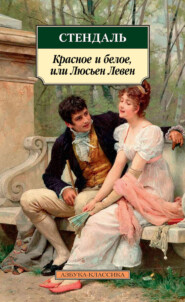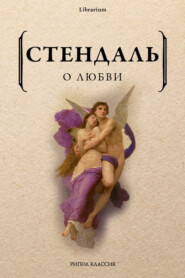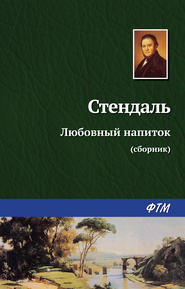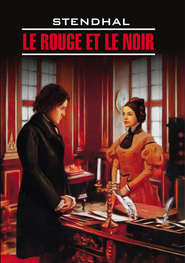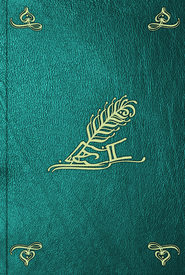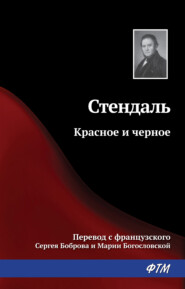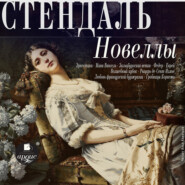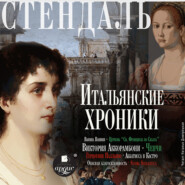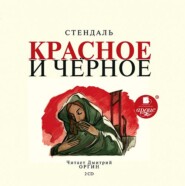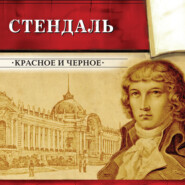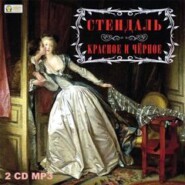По всем вопросам обращайтесь на: info@litportal.ru
(©) 2003-2024.
✖
The Roman Tales
Настройки чтения
Размер шрифта
Высота строк
Поля
The battle lasted but three-quarters of an hour. Taken by surprise, Orsini’s followers scattered in all directions. In Colonna’s advance guard, brave Captain Ranuccio was killed, a misfortune that had tragic consequences for Branciforte. As he fought his way towards the executioners, Giulio came face to face with Fabio Campireali.
Mounted on a foaming horse and clothed in a gilded giacca, Fabio shouted, ‘Who are these wretched creatures? Let’s slash their masks. Watch how I do it.’
A sword caught Giulio Branciforte across the forehead. The blow was so skilfully aimed that his hood slipped down and he was blinded by blood. So as to catch his breath and wipe his face, Giulio tugged his horse aside. Anxious to avoid an encounter with Elena’s brother, he had retreated a few paces when he received a sharp sword thrust to the chest. Thanks to his giacca the point did not penetrate, but he was momentarily winded. Almost at once he heard a cry in his ear.
‘Ti conosco, porco! Swine, I know you! This is how you earn the money to replace your rags.’
Sorely angered, Giulio forgot his first resolve and turning to Fabio he shouted, ‘Ed in mal punto tu venisti! You’ve come at a bad moment.’
Several exchanges of sword thrusts shredded the garments which covered their mail. Fabio’s armour was gilded and sumptuous, Giulio’s plain.
‘Fom what sewer did you scavenge that giacca?’ shouted Fabio.
Just then, Giulio saw his opportunity. Fabio’s splendid coat of mail was loose round his neck, and Giulio’s sword found a gap. Its point sank half a foot into Fabio’s throat, and a great jet of blood spurted out.
‘Impudent fellow,’ shouted Giulio, and he galloped towards the men in red, two of whom were still on horseback a hundred paces away. As he approached them, one fell, but just as Giulio reached the last remaining executioner, the man, finding himself surrounded by more than ten horsemen, fired his pistol point blank at the unfortunate Baltassare Bandini.
‘There’s no more we can do here, my friends,’ called out Branciforte. ‘Let’s carve up the cowardly police who ran off.’
His men followed him.
When half an hour later Giulio returned to Fabrizio, the prince addressed him for the first time ever. Giulio thought Prince Colonna would be greatly pleased by the victory, which was total and due entirely to his own skill, for Orsini had nearly three thousand men and Fabrizio only fifteen hundred. But Colonna was drunk with rage.
‘We have lost our true friend Ranuccio,’ he cried. ‘I have just laid my hand on his body. It’s already cold. Poor Baldassare Bandini is mortally wounded. So we’ve really lost. But the shade of brave Captain Ranuccio will appear before Pluto well accompanied. I’ve ordered all these prisoners, this scum, to be hanged from the trees. Do not fail in this, men!’
He galloped off to where the battle of the advance guard had taken place. With the remnants of Ranuccio’s band Giulio followed the prince, who found the body of the old soldier surrounded by more than fifty enemy dead. The prince dismounted and once more took Ranuccio’s hand. Weeping, Giulio did likewise.
‘You are very young,’ said the prince to Giulio, ‘but I see you are covered in blood. Your father was a brave man who was wounded more than twenty times in the service of the Colonna family. Take command of Ranuccio’s band and bear his body to our church in La Petrella. Remember, you may be set upon along the way.’
Giulio was not attacked but he stabbed to death one of his own soldiers who said he was too young to be a commander. This rash act passed censure because Giulio was still covered in Fabio’s blood. All along the road he found trees laden with hanged men. This repulsive sight, together with Ranuccio’s death – and above all Fabio’s – nearly drove Giulio mad. His only hope was that no one knew the name of Fabio’s killer.
Three days after the battle, Giulio returned to Albano. He told his friends that a high fever had kept him in Rome, where he’d spent the whole week in bed. But everywhere he was approached with marked respect. The most important people in the town were the first to greet him. Some rash persons went so far as to address him as Signor Capitano. On several occasions he passed by the Palazzo Campireali, which was completely closed up. But as the new young captain was shy about asking certain questions, it was not until midday that he brought himself to approach Scotti, who had always been kind to him. ‘Where are the Campireali?’ Giulio asked. ‘Their palazzo is locked up.’
‘My friend,’ replied the grief-stricken Scotti, ‘theirs is a name you must never utter. Your friends are convinced it was Fabio who sought your life and they will say this anywhere, but really he was the main hindrance to your marriage. His death leaves an extremely wealthy sister, who is in love with you. Add to this – and here indiscretion is to your advantage – that she loves you enough to make nightly trysts with you at your house. That means that you and she were husband and wife before the fateful battle.’
Seeing Giulio begin to weep, the old man fell silent.
‘Let’s go to the inn,’ said Giulio.
Scotti followed. They were given a room, which they entered and locked, and Giulio asked permission to tell the old man everything that had happened the previous week.
When the long story ended, the old man said, ‘I can see by your tears that none of what you did was premeditated. But Fabio’s death is nonetheless a disastrous accident for you. Elena must tell her mother that you have been married for a long time.’
Giulio did not reply, which the old man put down to a praiseworthy discretion. Absorbed in deep thought, the young man wondered whether Elena would be too upset by her brother’s death to appreciate Giulio’s own grief. He cursed what had happened.
Then at Giulio’s request, the old man recounted all that had taken place in Albano on the day of the battle. Although Fabio had been killed at half-past six in the morning, more than six leagues from Albano, by nine o’clock his death was already known. Towards midday old Campireali had been seen weeping, supported by his servants, on his way to the Capuchin monastery. Shortly after, three of the good fathers, mounted on the best Campireali steeds and followed by many servants, were journeying to the village of Ciampi, near where the battle took place. Old Campireali had insisted on following, but he had been persuaded not to because Fabrizio Colonna was furious – no one knew exactly why – and might well harm him if he were captured.
That evening, towards midnight, all Faggiola forest seemed ablaze. It was the monks and the poor people of Albano, carrying lighted brands, going to meet young Fabio’s corpse.
‘I will not hide from you’, went on the old man, dropping his voice as if afraid of being overheard, ‘that the road leading to Valmontone and Ciampi …’
‘Well?’ said Giulio.
‘Well, this road passes in front of your house, and it is said that when Fabio’s body reached that point blood spurted from his fearful wound.’
‘Terrible, terrible!’ cried Giulio, starting to his feet.
‘Calm yourself, my friend,’ said the old man. ‘You must see that you need to know everything. I think you may have come back too soon. If you would do me the honour of asking my advice, I would add, Captain, that you should stay away from Albano for at least a month. I don’t have to tell you that it would not be wise for you to be seen in Rome either. No one yet knows what the Holy Father will do to Prince Colonna. It is thought that he will uphold Fabrizio’s claim that he only heard of the battle of Ciampi by rumour. But the governor of Rome, who is one of the Orsini camp, is furious and would like nothing better than to hang some of Fabrizio’s soldiers, at which the prince can hardly complain since he swears he had no involvement in the battle. I shall go further and take the liberty of giving you military advice. You are well liked in Albano, otherwise you would not be safe here. You’ve been walking about the town for several hours. One of Orsini’s men might think he was being insulted or that it would be easy to get his hands on a fine reward. Old Campireali has said a thousand times that he’ll give his best land to the man who kills you. You ought to send some of the soldiers in your house down to Albano.’
‘I have no soldiers in my house.’
‘In that case, Captain, you are mad. This inn has a garden. We’ll leave that way and cut across the vineyard. I’ll come with you; I am old and unarmed. But, if we meet any enemies I’ll speak to them and that should gain you some time.’
Giulio was in despair. What madness had he in mind? After learning that the Palazzo Campireali was empty and all its inhabitants had left for Rome, he had decided to go back to see the garden where he’d enjoyed so many trysts with Elena. He even hoped to revisit her room, where he’d been welcomed when Elena’s mother was away. He needed to steady himself to face her anger by seeing once more the places where she’d been so tender to him.
Branciforte and the old man met no enemies as they followed the little paths that cut through the vineyard and climbed towards the lake.
Giulio wanted to hear again the details of Fabio’s funeral. Escorted by many priests, the body of the young man had been taken to Rome and buried in the family vault at the Monastery of Sant’ Onofrio, on the summit of the Janiculum. On the eve of the ceremony, strangely, Elena had been taken back to the Convent of the Visitation in Castro. This confirmed the rumours that she had been secretly married to the soldier of fortune who’d had the ill luck to kill her brother.
When he neared his house, Giulio met the corporal of his company and four of his soldiers. They told him that their late captain never left the forest without taking some of his men with him. Prince Colonna often said that if anyone wanted to get himself killed through recklessness he must first tender his resignation so as not to oblige the prince to avenge a death.
Giulio Branciforte now understood the justice of this remark, which previously had been obscure to him. Hitherto he had thought that war consisted solely of fighting courageously. There and then he obeyed the prince’s orders, only allowing himself time to embrace the wise old man who had been kind enough to see him home.
A few days later, half crazed with melancholy, Giulio returned to the Palazzo Campireali. At dusk, he and three soldiers, disguised as Neapolitan merchants, entered Albano. He went alone to Scotti’s house, where he learned that Elena was still in the Convent of Castro. Her father, who thought she was married to his son’s murderer, had sworn never to see her again. He had not even looked at her while escorting her to the convent. Conversely, her mother’s affection had further increased, and she often left Rome to spend a day or two with her daughter.
IV
‘If I cannot justify my actions to Elena,’ thought Giulio that night on reaching his company’s camp in the forest, ‘she’ll think me a murderer. God knows what she’s been told about the battle.’
He went to the fortress of La Petrella to receive orders from Prince Colonna and asked him for leave to go to Castro.
Fabrizio Colonna frowned. ‘The matter of that little battle has not yet been settled with His Holiness,’ he said. ‘I have to tell you that I spoke the truth, which is that I knew nothing about the engagement, as news of it only reached me here the following day. I’ve reason to believe His Holiness will accept my account. The Orsini are powerful, but everyone says you distinguished yourself in the affray. The Orsini are even claiming that some of the prisoners were hanged from trees. You know that simply is not true, but we can expect reprisals.’
The astonishment on the naive young captain’s face amused the prince. However, because of it, Colonna decided to explain himself more fully.
‘I see in you the immense courage that made the name of Branciforte known throughout Italy,’ the prince went on. ‘I hope you’ll prove as faithful to my family as your dear father was, and I want to reward you for this. These are the rules of my organization. Never speak the truth about anything concerning me or my soldiers. If at any time you are forced to speak and you do not see any point in lying, tell any sort of falsehood but refrain as from mortal sin from speaking the truth. You must understand that it could give away all my plans. I know of your little affair in the Convent of the Visitation. You can spend two weeks in Castro, but the Orsini will certainly have friends and even spies there. Go to my steward. He’ll give you two hundred zecchini. The friendship I enjoyed with your father’, added the prince, laughing, ‘makes me want to offer you some advice on the proper way to conduct your amorous skirmish. You and three soldiers will disguise yourselves as merchants. You’ll pretend to be angry with your companions, who will pretend to be drunk and will make many friends by buying wine for all the layabouts in Castro. Further,’ added the prince in a different tone, ‘if you’re captured and killed by the Orsini, do not let your real name be known. Above all, never admit you’re one of my men. I don’t need to tell you to give a wide berth to small settlements and always enter a town by the gate opposite to the direction from which you are travelling.’
Giulio was overwhelmed by this fatherly advice, coming from such a normally stern man. At first the prince smiled at the tears he saw in the young man’s eyes. Then his tone changed. He slipped off one of his many rings. Taking it, Giulio kissed the hand renowned for so many illustrious deeds.
‘My father never spoke to me like this,’ the young man said fervently.
Two days later, a little before dawn, Giulio entered the town of Castro. Five soldiers, also disguised, accompanied him. Two came separately and pretended not to know him or the other three. While approaching the town, Giulio had observed the Convent of the Visitation, a huge fortress-like structure rising above dark surrounding walls. He headed straight for the sumptuous church. The nuns, who were all from noble and mostly rich families and were full of pride and self-esteem, competed with each other to enrich the church, the only part of the convent open to the public. The custom was for one of these ladies, appointed abbess by the pope from a list of three names presented by the cardinal, protector of the Order of the Visitation, to make a very large donation in order to preserve her name for posterity. If her offering was smaller than that of the previous abbess, she and her family would be held in disregard.
Astonished, Giulio made his way along the nave of the magnificent building, with its gilding and its marble statues. He had little thought for either. He felt as if Elena were watching him. The high altar was said to have cost more than eight hundred thousand scudi, but blind to its splendour he fixed his eyes on a golden grille nearly forty feet high and divided in three by two marble columns. Menacing in its size, the grille rose behind the high altar, separating the nun’s choir from the church.
Behind this grille nuns and boarders sat during the services. There they could come and pray at any time of day. It was on this well-known fact that Giulio had placed his hopes.
A huge black curtain covered the inside of the grille but did not conceal the boarders’ view of the public. Through the curtain Giulio could clearly see the windows which lit up the choir and he could make out even the smallest detail. Each bar of the magnificent grille bore a sharp spike turned towards the congregation.






